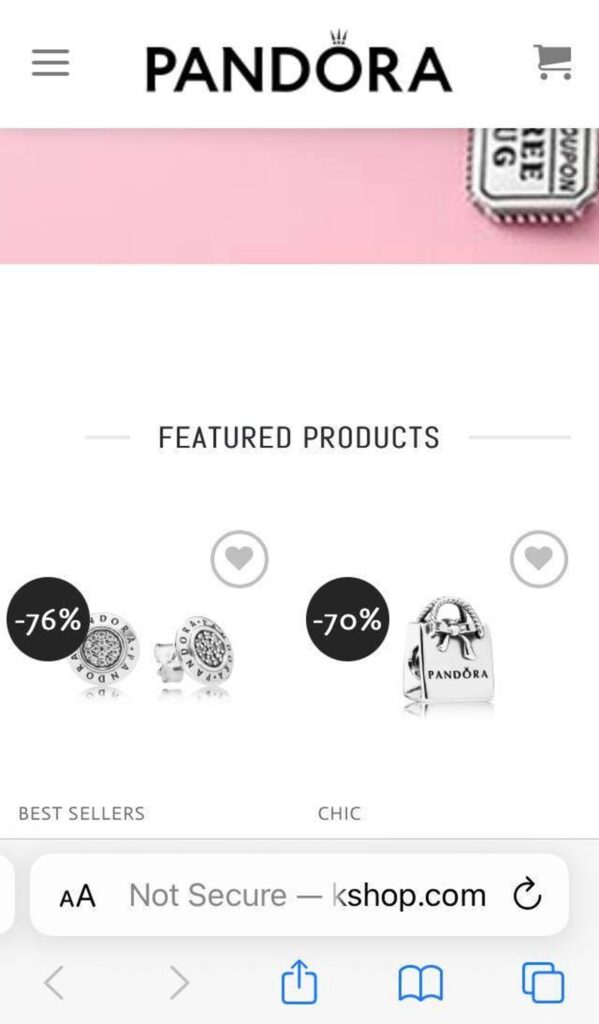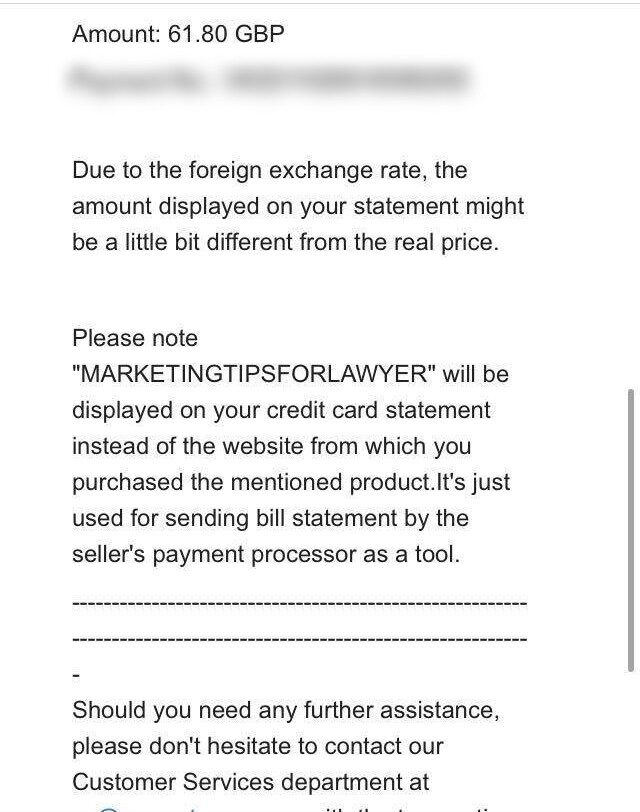A WOMAN has issued a warning to shoppers in the run up to Christmas after claiming she was tricked by a ‘scam’ Pandora website.
Thirza O’Boyle was left devastated after realising the Christmas presents she’d bought online for daughter Darcey turned out to be from a “scam website” almost identical to the real one.
The 43-year-old, from Corby, North Northamptonshire, said she was “sobbing” last Tuesday after being alerted via her banking app of a £61.80 charge to an unknown recipient.

The teaching assistant opened the confirmation email from the website, which read: “Please note ‘MARKETINGTIPSFORLAWYER’ will be displayed on your credit card statement instead of the website from which you purchased the mentioned product.”
Thirza called her bank in an attempt to rescind her cash but was advised that an investigation may not be successful due to the payment being taken with her consent.
She took to social media last Wednesday to warn others of falling victim to scam websites as Christmas draws nearer.

She wrote: “Well I feel absolutely stupid right now! I typed in ‘Pandora sale’ on Google and clicked on what I thought was the genuine site.
“I got some ‘bargains’ and paid £61.80, it all looked very legitimate. Then, I got an alert to say I’d made a payment of £66.95.
“I checked my email and in my junk mail, I had an email from a random address with the confirmation of a payment of £61.80 but that some random name will appear on the statement.
“I started panicking as this was obviously not genuine Pandora at all. I’ve rung my bank and stopped my card and I’m now hoping I can dispute the payment but I’ve been sobbing for ages.
“It was an order for Christmas presents for my daughter, using the savings I’ve put away to cover Christmas. Please, please let this be a lesson that all is not as it seems…I’m gutted.”
The post has received hundreds of likes and comments, with many sharing their own experiences of falling for online scams.

One person said: “I’ve done exactly the same thing. I saw a site that was selling a Lego Disney castle for £40 and thought it was great.
“I was mega annoyed when a pair of Rayban glasses turned up on my doorstep. It was a dodgy website but I managed to dispute the charge and get my money back.”
Another wrote: “So many fake sites. You can literally buy anything fake these days.
“I got some GHDs once and they went bang and set alite [sic] one time while in my hand. Hope you get your money back.”
A third added: “I did this last year and spent over £100. The bank did end up getting my money back. When something seems too good to be true it normally is.”
Thirza shared several photos of the website without a secure padlock next to the web address, as well as the invoice reference, with the hope that it would help others avoid falling for it too.
She has not received any items that she ordered yet and has thankfully not had any extra funds removed from her account since cancelling her card and raising the investigation.
Speaking today, she said: “I first Googled ‘Pandora sale’ and clicked on the link that I genuinely thought was the real Pandora website.

“After looking around, I bought some items and paid for them, using my debit card, and the amount came to a total of £61.80.
“Soon after, I received a receipt which went into my junk mail and when I opened it, the email said that the invoice for the card payment would show as ‘marketing tips for lawyer’.
“That was when I realised that it was a scam and quickly checked my banking app. I discovered they had actually taken £66.95, despite me having a receipt for a different amount.
“Looking closely, I then realised it wasn’t a UK company at all, it was a scam website and there had been an exchange rate calculation.
“The bank is now doing a full investigation but I’ve been told it might not be successful as I made the payment. Hopefully, my post can help stop it happening to someone else.
“I would hate someone to feel like this.”

A Pandora spokesperson said: “Unfortunately, like many other global luxury brands, we face the challenge of counterfeiters copying our designs, violating our brand and free riding on our goodwill. We do not tolerate counterfeiting and we operate an anti-counterfeiting programme against manufactures and distributors of Pandora counterfeit products.
“As such, we remove hundreds of thousands of fake listings, websites and social media posts every year. We strongly encourage customers to purchase Pandora items through our official e-store or from authorised Pandora merchandisers, both of which can be found at www.pandora.net.
“Should customers have any doubt, our dedicated Brand Protection team are on hand to help verify the authenticity of the dealer and can take legal action forward if there are concerns. In cases where the purchase may have already been made, we can also provide written confirmation that the reported website is not authorised and, depending on the bank involved, this can often be used as evidence to make claims.
“Our team can be contacted directly at [email protected]. In the UK, you can also report any counterfeit online sellers to the Trading Standards or Action Fraud who can take legal action. More information on how to do this can be found at Citizens Advice”.
Pandora also included tips for spotting counterfeit jewellery:
“Pricing: If the price is dramatically cheaper than all other similar pieces on the official website, chances are something may not be right. Cheap jewellery purporting to be precious metals and gemstones should ring alarm bells.
“Hallmark engravings: Hallmarks are a set of marks applied to articles of precious metals, which shows that the item meets the legal standards of purity. They can also tell you who the maker is and where the jewellery was hallmarked.
“You can research the hallmark number online, which will give you more information about the purity and provenance of the piece.
“Brand inaccuracies: If you’re buying branded jewellery check the font, spelling, logo, and colouring on the piece are consistent with what you’d expect from that brand. Inspect images of other jewellery on the brand’s official page to help see if you can identify slip-ups on counterfeit piece.
“Consult experts: When in doubt, consult the experts, specifically the brand itself or an authorised seller.”

